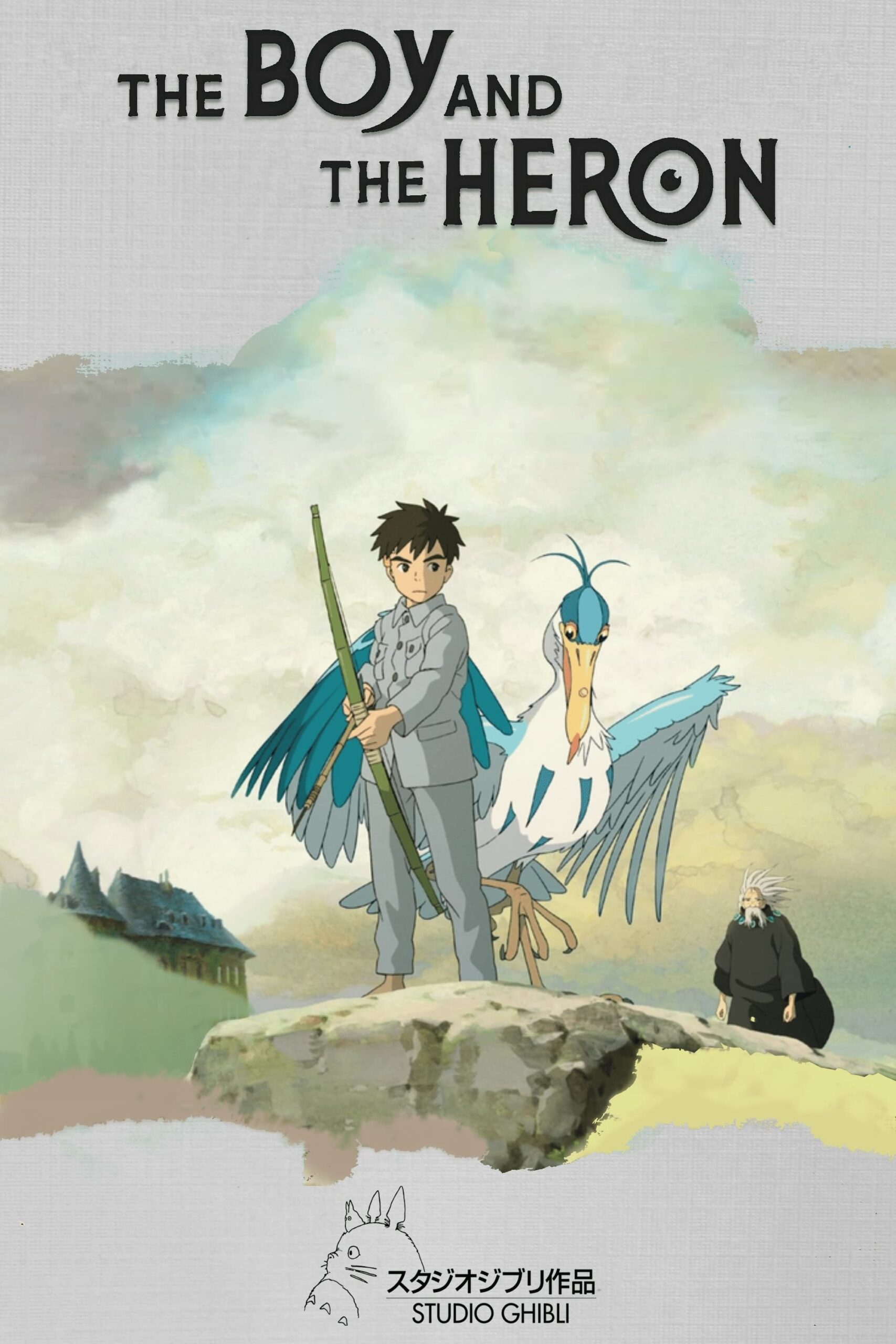
The Boy and The Heron 君たちはどう生きるか
Written and Directed by Hayao Miyazaki
Developed by Studio Ghibli
Rating: ★★★★★
There’s a fine line between a work of art and a masterpiece, and for me, it’s defined by the ability to capture human connection and struggle. In this regard, Hayao Miyazaki has truly mastered the craft with Studio Ghibli. His latest film, The Boy and the Heron, left me speechless. I’ve struggled to find the right words to express how I feel about this production; its impact goes beyond simple praise. Once again, Miyazaki’s work reaches profound depths, exploring themes that resonate on both a personal and universal level. Simply put, it’s spectacular.
One of the most striking aspects of The Boy and the Heron is how he uses the heron as a symbolic guide on the boy’s journey. In Japanese culture, herons represent strength, grace, and often a connection to the spiritual world. As the boy follows the heron through both real and fantastical landscapes, it feels as if he’s navigating his own subconscious, encountering fragments of grief, hope, and self-discovery along the way. The heron’s ambiguous role—both companion and mysterious, somewhat foreboding presence—reflects the complexity of facing our inner struggles. Miyazaki masterfully uses this symbolism to illustrate that the journey of healing is neither straightforward nor simple, but filled with characters, moments, and choices that defy easy categorization.
The director ability to blend fantasy with real human emotions gives the film a unique power. The protagonist’s journey works as both a literal adventure and a metaphor for dealing with loss. The visuals amplify this impact, with stunning hand-drawn animation and nature scenes that feel almost alive—especially the breathtaking war scenes. By letting quiet moments and open-ended scenes linger, he invites viewers to find their own meaning in the story.
As someone who’s always been drawn to silence (I even wrote a piece called “The Magic of Silence”), this approach resonates deeply with me. The film’s quiet moments felt like they were speaking directly to my own struggles, allowing space for reflection in a way few films do.
The Boy and the Heron combines Japanese cultural elements with universal themes, making it both specific and timeless. Like many of his films, it’s grounded in folklore yet resonates with anyone who’s experienced struggle or growth. It’s a reminder of how powerful animation can be as a medium for exploring complex emotions in a way that feels both intimate and universal.
Oh, let’s not forget the original soundtrack! I often say that music reviews aren’t really my cup of tea—because they aren’t! But I love discussing music that resonates with me. However, this soundtrack deserves expert commentary. Be sure not to miss this post on Pitchfork magazine!
Image courtesy of Studio Ghibli
Comments are closed.